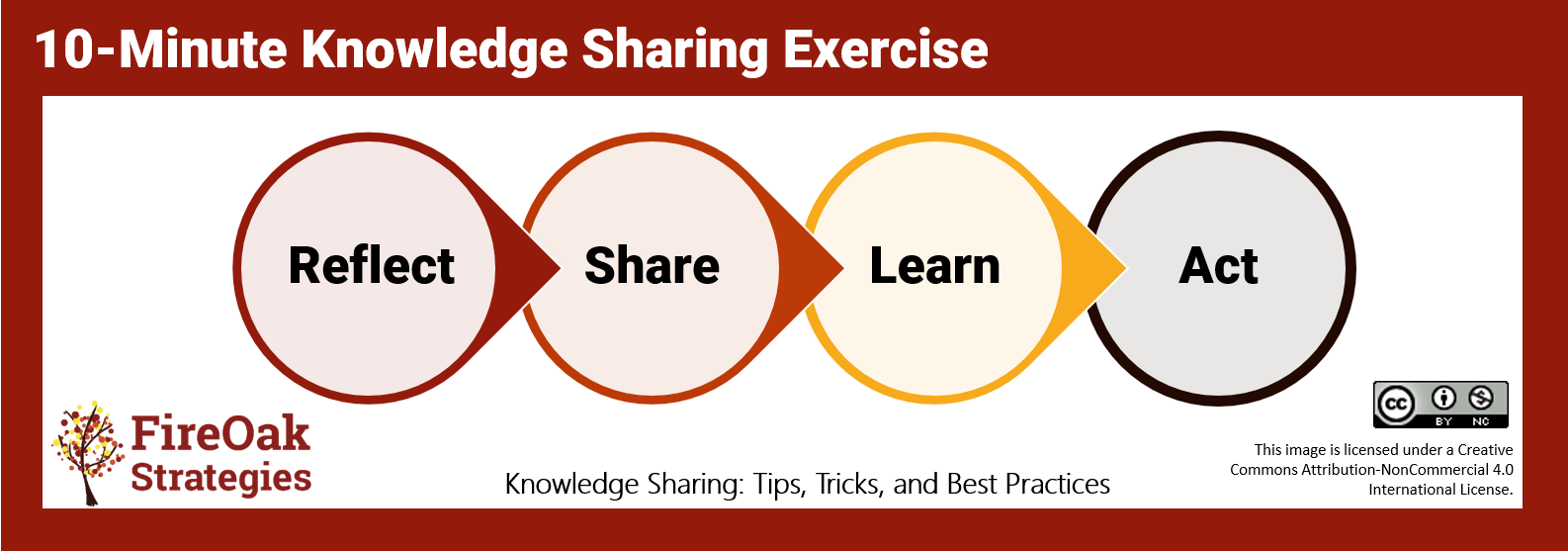Nearly every organization we’ve worked with wants to improve their internal knowledge sharing, but a common refrain from staff is, “we don’t have the time.” While plenty of knowledge management and knowledge sharing practices require some level of organizational investment of time and resources, this 10-minute knowledge sharing exercise can be a simple, fast, and effective way to get started, without draining resources.

Next time your group or team has a meeting, set aside ten minutes at either the start of the meeting or the end for. I prefer using the last ten minutes of a meeting, but if your group is notorious for starting late, it might be a good way to use the first few minutes as folks are trickling in and sitting down.
Start by selecting a single event or opportunity to focus on — for example, a recent event, project milestone (product launch, new system deployment, website launch), or ongoing service offered to clients, members, or other key stakeholders.
Break down the knowledge sharing into the following increments:
Reflect (1-2 minutes)
Pose a question to individuals to reflect upon by themselves. Examples of the types of questions to ask: How did the [project/event] go — what went smoothly? What could we have done differently? What should we do differently next time?
Share (2-3 minutes)
Depending on the size of the group, have everyone or a few volunteers share what they were thinking.
Learn (4 minutes)
As a group, discuss what you learned from each other. Were there any surprises that other members of the team shared? What new ideas emerged?
Act (2 minutes)
Discuss how you will act on or apply this new knowledge. How can this knowledge be put in place or acted upon? How can you apply this knowledge to other projects, initiatives, services, activities?
This exercise can be used within longer stretches of time as well, but it’s an easy way — with a low barrier — to get started with knowledge sharing within any type of group or team. Once teams have adopted this practice and have gotten into the habit of setting aside short bursts of time to reflect and learn from each other, it’s easier to adopt other knowledge sharing practices and embed knowledge sharing into the fabric of your group.






